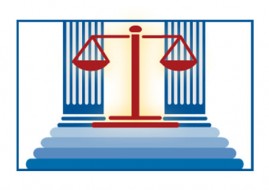Some States Require Notice on Malpractice Coverage
By Lazar Emanuel [Originally published in NYPRR August 2001]
New York does not require its lawyers to purchase and maintain malpractice insurance. However, a number of states now require their lawyers to notify their clients at the time of engagement if they have less than a minimal level of coverage. Ohio has now joined this group of states.
By notice which became effective on July 1, 2001,the Supreme Court of Ohio amended DR 1-104 of the Ohio Code of Professional Responsibility. The amendment requires every lawyer to notify every new client in writing if the lawyer does not maintain professional liability insurance of at least $100,000 per occurrence and $300,000 in the aggregate. Notice to the client is required also if the lawyer’s insurance is terminated. The notice must be signed by the lawyer and acknowledged by the client. The forms for notice and acknowledgment are set forth in the new rule.
The lawyer is required to keep a copy of the notice and acknowledgment for a period of five years after the representation is terminated. The only exceptions to the new rule are for government lawyers and in-house counsel in connection with legal services to their employer.
Alaska and South Dakota have adopted rules similar to Ohio. Virginia requires all its lawyers to certify in a public record whether or not they carry malpractice insurance.
NYSBA Opinion 734
Although New York does not require malpractice coverage or notice to the client of no or minimal coverage, its rules have been construed to require New York lawyers to disclose to clients significant errors or omissions which may lead to claims of malpractice. In Opinion 734 (11/1/00), the Committee on Professional Ethics of the State Bar applied that construction to the Legal Aid Society.
The NYSBA Opinion said, “…since lawyers have an obligation to keep their clients reasonably informed…and to provide information that their clients need to make decisions relating to the representation, the Society’s lawyers would have obligation to disclose to the client the possibility that they have made a significant error or omission.” [See, State Op. 396 (1975); EC 7-7, EC 7-8.]
The Opinion relied on DR 5-101(A)’s strictures against conflicts of interest. “…In N.Y. State 275 (1972), we addressed the situation of a lawyer who failed to file a claim within the statute of limitations period. We held that a lawyer had a professional duty to notify the client promptly that the lawyer had committed a serious and irremediable error, and the possible claim that the client may have against the lawyer for damages…”
Lazar Emanuel is the Publisher of NYPRR.
DISCLAIMER: This article provides general coverage of its subject area and is presented to the reader for informational purposes only with the understanding that the laws governing legal ethics and professional responsibility are always changing. The information in this article is not a substitute for legal advice and may not be suitable in a particular situation. Consult your attorney for legal advice. New York Legal Ethics Reporter provides this article with the understanding that neither New York Legal Ethics Reporter LLC, nor Frankfurt Kurnit Klein & Selz, nor Hofstra University, nor their representatives, nor any of the authors are engaged herein in rendering legal advice. New York Legal Ethics Reporter LLC, Frankfurt Kurnit Klein & Selz, Hofstra University, their representatives, and the authors shall not be liable for any damages resulting from any error, inaccuracy, or omission.
Related Posts
« New Rules for Lawyers Who Run for Judicial Office California Marches to Different Drummer »








